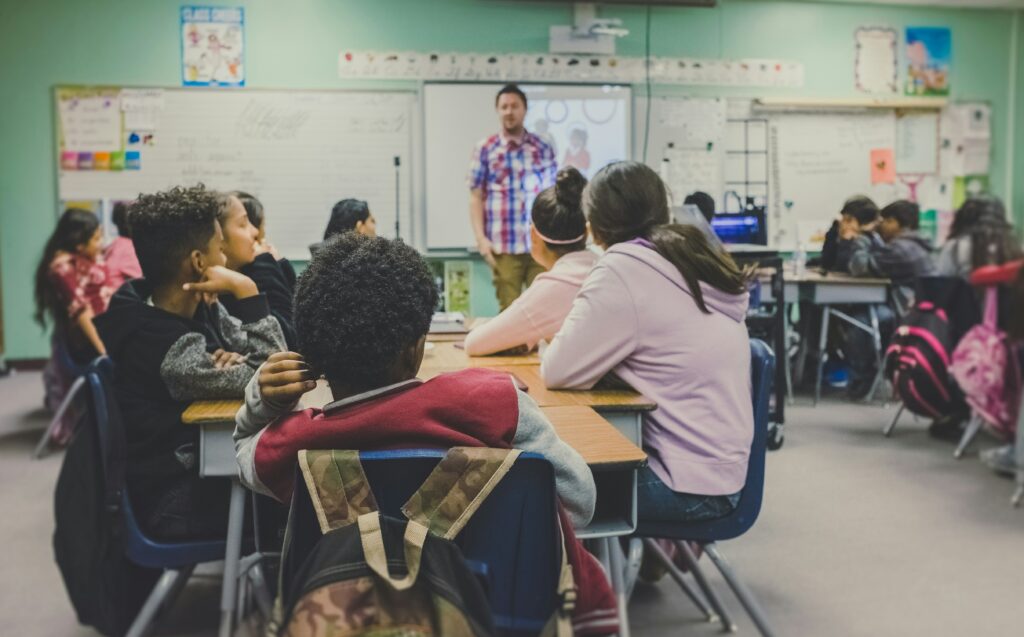Discipline in education transcends mere punishment; rather, it constitutes a foundational pillar crucial for cultivating an environment conducive to learning. Within the educational sphere, discipline encompasses an array of strategies aimed at instilling order, respect, and accountability among students. Ranging from structured routines to clearly defined behavioural norms, discipline serves as a linchpin in moulding students’ attitudes, behaviours, and academic achievements. In the forthcoming discussion, we will explore the multifaceted nature of discipline in education, elucidate its significance for both educators and learners, and analyse its pivotal role in fostering a harmonious and enriching learning atmosphere.
What is Discipline in Education?

Discipline in education refers to the set of rules, regulations, and practices designed to promote orderly conduct, respect for authority, and adherence to academic standards within a school or educational institution. It encompasses both proactive measures to prevent misbehaviour and reactive strategies to address infractions effectively. These measures may include establishing clear expectations, implementing consistent consequences, and fostering a supportive learning environment where students feel valued and accountable for their actions.
Why is Discipline in Education Important for Teachers?
For teachers, maintaining discipline in the classroom is paramount for several reasons:
- Establishing a conducive learning environment: Discipline creates an atmosphere where students feel safe, respected, and engaged, fostering optimal conditions for learning and academic achievement.
- Promoting effective teaching: A well-disciplined classroom allows teachers to focus on delivering quality instruction without disruptions, maximising instructional time and student learning outcomes.
- Cultivating positive relationships: By enforcing fair and consistent discipline, teachers can build trust and rapport with students, enhancing communication, collaboration, and mutual respect.
- Preparing students for success: Teaching students’ self-discipline and responsibility equips them with essential life skills that are crucial for success both inside and outside the classroom.
What is Discipline and its Importance
Discipline, in a broader sense, refers to the ability to regulate one’s behaviour, thoughts, and emotions in accordance with established norms, rules, or principles. It involves self-control, self-direction, and adherence to moral or ethical standards, contributing to personal growth, success, and well-being.
In the context of education, discipline serves several vital functions:
- Fostering a culture of respect: Discipline instils values of respect, tolerance, and empathy, promoting positive social interactions and a sense of community within the school environment.
- Encouraging accountability: By holding students accountable for their actions, discipline teaches them the importance of taking responsibility for their behaviour and its consequences, fostering a sense of accountability and ownership.
- Enhancing academic performance: A disciplined approach to learning cultivates habits of diligence, perseverance, and focus, leading to improved academic performance and achievement.
- Building resilience and character: Through challenges and setbacks, discipline helps students develop resilience, determination, and grit, essential qualities for overcoming obstacles and achieving success in academics and beyond.
What is Discipline According to Students?
From the perspective of students, discipline may be viewed in various ways:
- Structure and consistency: Students may perceive discipline as the framework that provides structure, consistency, and predictability in the learning environment, helping them feel secure and supported.
- Fairness and justice: Students value discipline when it is perceived as fair, just, and applied consistently to all individuals, irrespective of background or circumstances.
- Support and guidance: Discipline, when implemented with care and empathy, can be seen as a form of support and guidance that helps students learn from their mistakes, grow as individuals, and make positive choices.
- Empowerment and self-control: Students may recognize discipline as a means of empowering them to exercise self-control, make responsible decisions, and contribute positively to the classroom community.
Discipline in a Montessori School:
In a Montessori school, discipline takes on a unique approach that aligns with the philosophy pioneered by Maria Montessori. Rather than relying on traditional forms of punishment or reward, Montessori educators emphasise intrinsic motivation and self-regulation. Discipline in a Montessori environment revolves around fostering independence, self-discipline, and a deep respect for oneself, others, and the environment. Through hands-on learning experiences and a carefully prepared environment, students are empowered to make choices, solve problems collaboratively, and manage their time effectively. The emphasis on freedom within limits allows children to develop a sense of responsibility and autonomy, laying the groundwork for lifelong learning and personal development.
Conclusion
In conclusion, at Open Minds Campus, we are committed to fostering discipline in education through the principles of Montessori philosophy. By promoting independence, self-regulation, and respect for all individuals, we create a nurturing learning environment where students thrive academically, socially, and emotionally. Our approach to discipline is not just about enforcing rules but about empowering students to become confident, capable, and compassionate individuals who are ready to make a positive impact on the world. To learn more about our Montessori-inspired programs and how we cultivate discipline in education, visit our website here.


